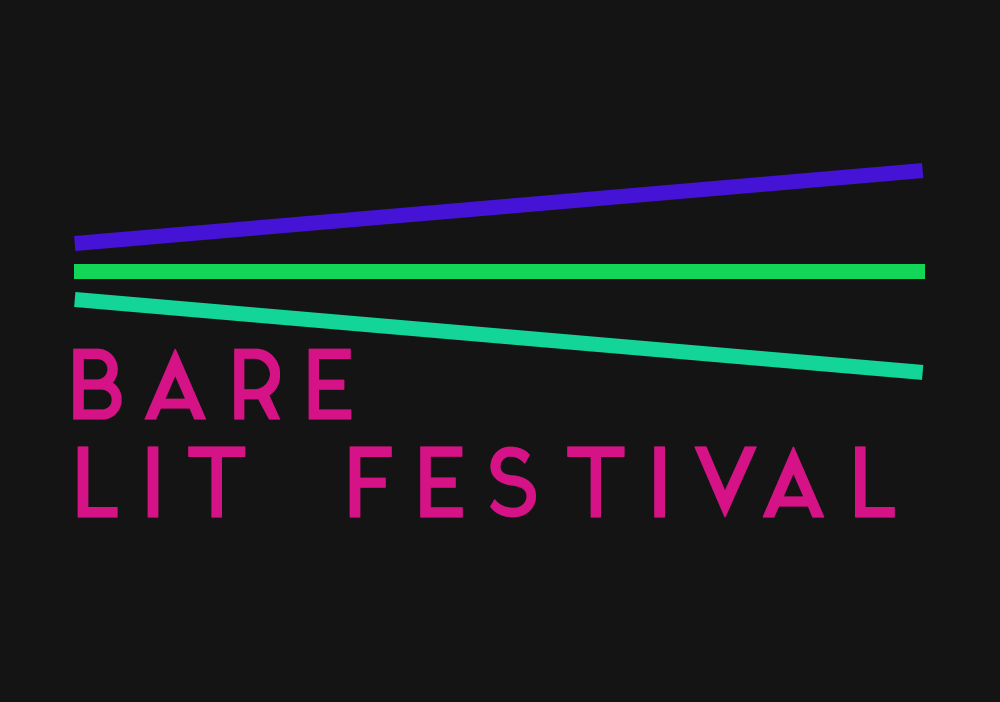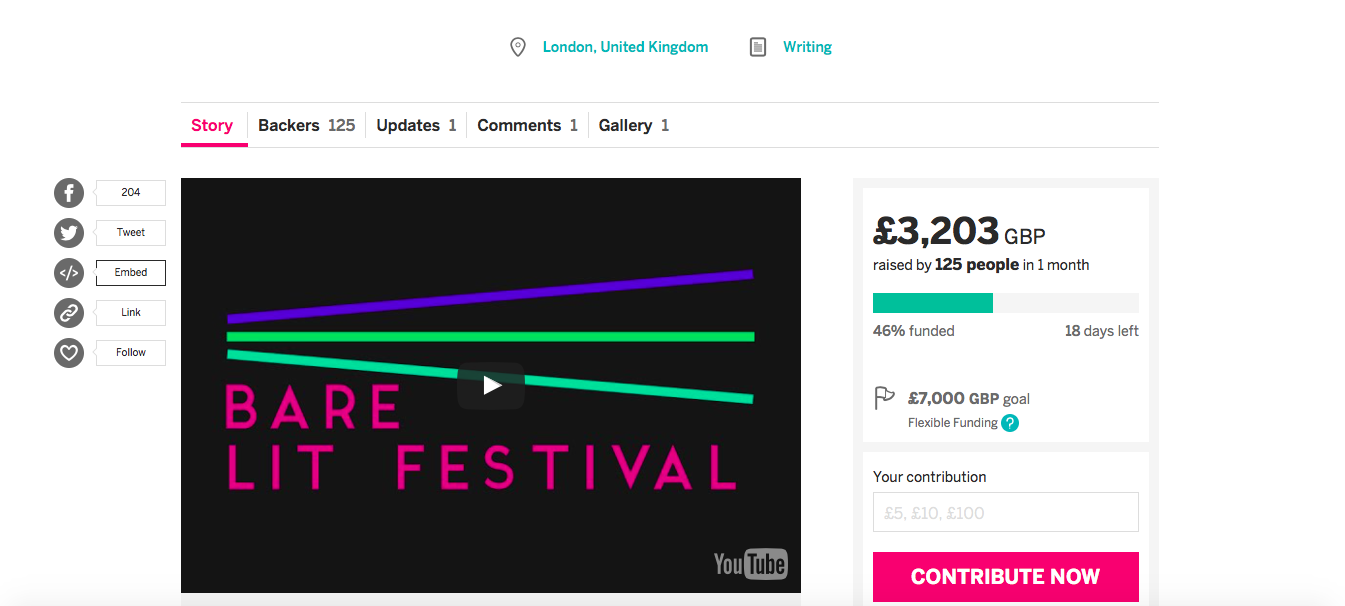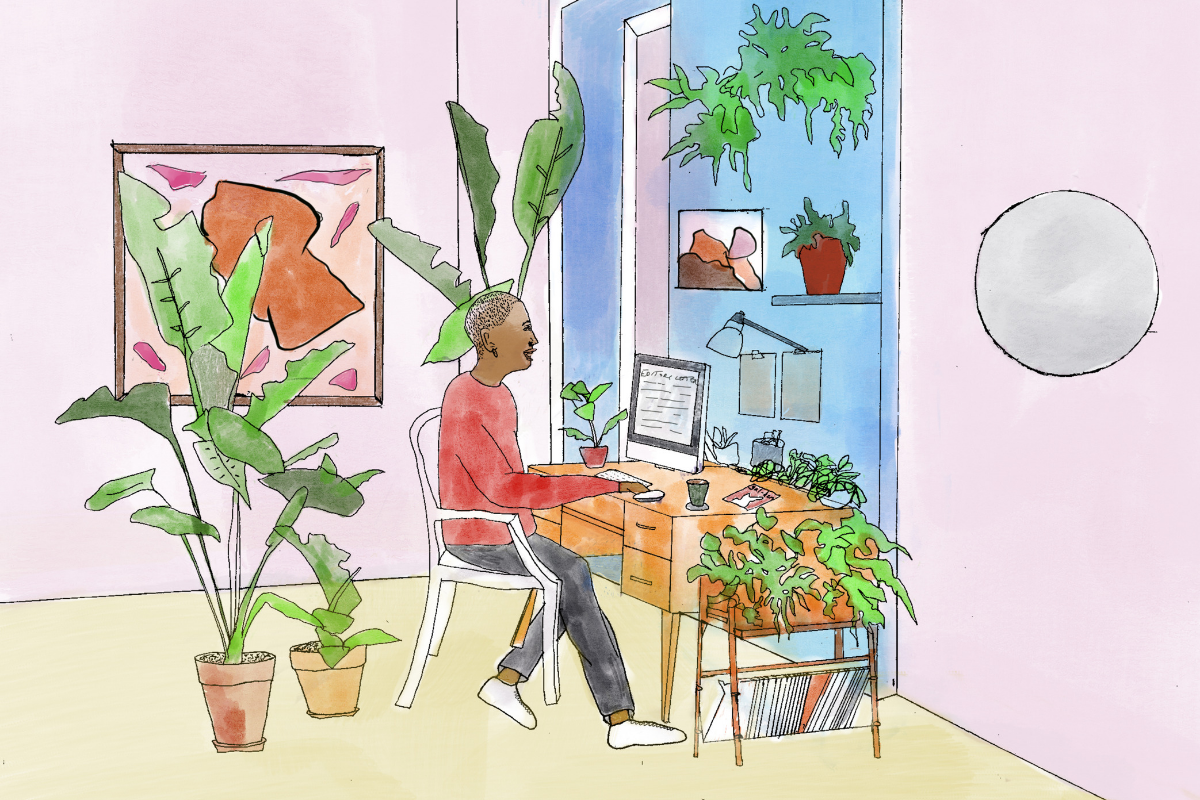
Samantha Asumadu and Sunny Singh are two of the brilliant minds behind Bare Lit, the UK’s first ever literary festival dedicated to showcasing the achievements of writers of colour. Asumadu is a filmmaker and the founder of Media Diversified, while Singh is an author and senior lecturer in creative writing at London Metropolitan. gal-dem spoke to to them about why Bare Lit is such a necessary space.
The key message behind Bare Lit is that writers and creatives of colour must create their own spaces to showcase their work, as this rarely happens through mainstream channels. As Jada Pinkett Smith so auspiciously highlighted in response to the #AllWhiteOscars, people of colour shouldn’t have to ‘beg’ for inclusion.
Asumadu: It’s important that we take hold of our own narratives, lest we get co-opted and our stories diluted and sanitised.
BAME writers made up only 4% of those included at The Times and The Sunday Times Cheltenham Literary Festival, The Hay Festival of Literature and Arts and Edinburgh International Book Festival. That’s just 80 writers of colour. The lack of inclusion of the vast body of talent in the BAME literary community makes it seem as though they do not exist and, when they are present, writers of colour often find themselves pigeonholed. Bare Lit acts as an opportunity for readers to engage with the work of writers of colour, in all their diverse forms and experiences.
A: We wanted to be able to provide a platform at Bare Lit for as many PoC writers as possible and help people who love reading to discover authors they may not have come across before.
Recently, there has been increased mobilisation in people of colour creating their own channels and networks and calling out the white hegemony which dominates in the creative world. We’ve seen Idris Elba call out the sideline roles given to people of colour in parliament, Nikesh Shukla slam the lack of BAME authors to feature in the 2016 World Book Night and bloggers launch the #DiverseDecember Campaign.
These issues are not new and the individuals mentioned are not the first to call out institutional racism of this sort. Why then, is so much visible action currently taking place after centuries-old issues of diversity and representation?
A: In the last year there seems to have been a snowball effect in the realm of publishing, with authors and some publications obviously frustrated with the cold shoulder shown to writers of colour speaking up. Various reports have been published, articles written, interviews given; the logical next step was to take those findings, distil the interviews and articles and give a tangible response. That is what Bare Lit is, walking the walk, rather than just talking the talk.
Asumadu and Singh are part of an ever increasing group of dissenting voices, who are committed to tackling issues of diversity within the literary world, academia and media more broadly.
Singh: Some of us who have been part of the discussion have been constantly working on it… and it’s grown from there. In the last three, four years, especially given social media, people have connected with each other… and suddenly the conversation has started happening in a public way and we’ve built from there… That for me is probably why you are seeing these initiatives at this point. There is also a sense that we are overtly losing ground… in terms of diversity in literature and media. There is really a sense that something needs to be done and quite quickly, that’s also probably added to why this has come about at this particular moment.
Bare Lit festival is set to take place on 26 – 28 February and will feature performances and discussions by an array of BAME writers. Discussions include ‘Second-Generation Poets in Exile’, ‘What Does Liberation in Literature Look Like?’ and ‘Sci-Fi vs. Afrofuturism‘.
The festival is being crowdfunded through Indiegogo and is about halfway towards reaching their goal. Funding being a huge obstacle for PoC run enterprise, vulnerabilities emerge where these businesses become dependent on external funding.
A: Often PoC-founded and run organisations are held back by a lack of funding. Which bodies want to fund organisations who, when you search ‘white supremacy’ on their website, pages and pages of hits come up? Not many. Hence why so many like us are embracing crowdfunding. It has opened up new avenues previously shut to us. Subsequently we’ve found if you make your own moves, keep creating for the benefit of our communities and do so unapologetically, we all reap the benefits in the way of a safety net of support unburdened by the white gaze. And the funders and press eventually come to you, ultimately meaning we can all do more.
The route to being published as a writer of colour is challenging, let alone having your work featured at the UK’s many literary festivals. Singh told gal-dem how she struggled to have her first two works published to begin with.
S: They were seen as either too Indian or not Indian enough. My last book was published in six different counties, did really well – different languages, but not English.
Her most recent work, Hotel Arcadia, has been picked up by a wider readership.
S: [But there was an] attitude of, ‘oh we don’t need to know about it’, in an establishment sense. It’s the same within academia, I will not make professor.
Singh explained that it isn’t enough for us to act in isolation but, as Alice Walker has said, we must reach out and create our own heroic writers’ network.
S: It’s not about meritocracy it’s about the structure… We don’t have to write the same things or even have to like each other as writers or people, we just need to be conscientiously writing and critically writing so that we can open the space for more people who follow.
Given the obstacles writers of colour face within academia and in the literary world, we asked both Asamadu and Singh if they had any advice for young writers of colour at the beginning of their journey.
Singh told us that she encourages her students to gain as much experience as possible, developing the industry knowledge which is required to succeed.
S: You have to find the people.. I push people to get their work out and get them in touch with other possibilities. When you are locked out of the structure you need mentors and you need support and I have never had that and I have a lot of older friends who have tried to help (women who are feminist etc) and I try to do the same thing; one of the things we do is organise careers days where my students can go out and meet publishers and have industry work. Unless we start doing that we can’t help. I work with my students to come up with an elevator pitch and help with their CVs. Things which are not necessarily talked about on other courses, these are things which they are going to need.
As we ended our conversation, Singh offered to meet me for a coffee in town and discuss things further; her commitment to mentoring the next generation of writers of colour couldn’t be more evident.
Asumadu, who has had a less ‘traditional’ academic background and is deeply rooted in film, also had some advice.
A: While I can’t offer advice on how to break into the literary world, everyone’s experiences vastly differ as far as I can tell; I would echo James Baldwin when he said ‘Read, read, read, never stop reading. And when you can’t read anymore… Write’.










